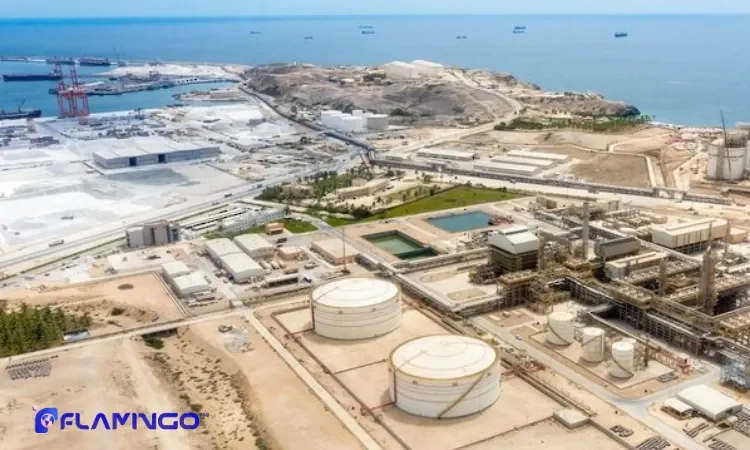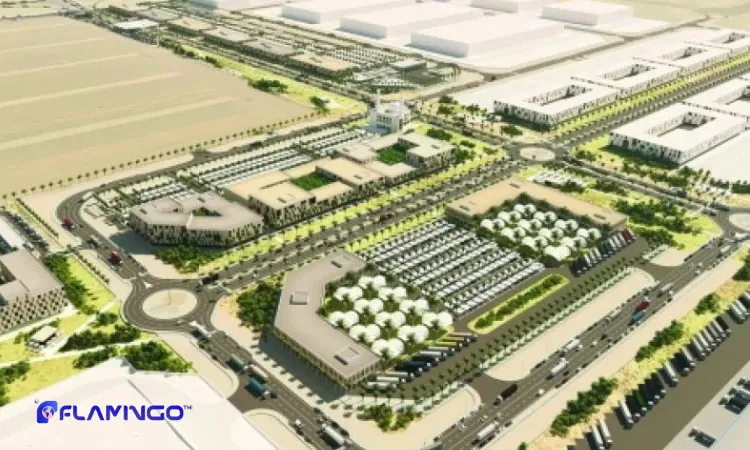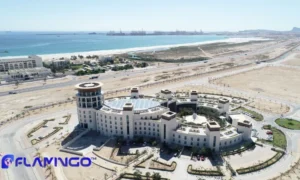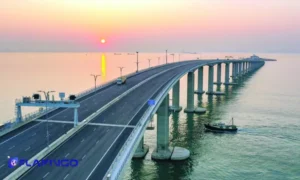Oman has emerged as one of the most attractive investment destinations in the persian Gulf region, thanks to its strategic location between Asia and Africa, a stable political environment, and government-driven economic reforms.
For international entrepreneurs seeking business expansion in the Middle East, Oman’s free zones offer a highly competitive and tax-efficient environment. Investors can enjoy 100% foreign ownership, simplified company registration in Oman, and a strong logistics network that connects the GCC, Indian subcontinent, and Africa.
These advantages make investment opportunities in Oman free zones increasingly popular among businesses in manufacturing, logistics, energy, and trade.
What Are Oman Free Zones?
Free zones in Oman are designated economic areas that offer a range of incentives to attract foreign investors and promote trade and industrial development.
They are managed under the supervision of The Public Authority for Special Economic Zones and Free Zones (OPAZ) and are designed to support export-oriented industries, diversify the economy, and create employment opportunities.
In simple terms, a free zone allows businesses to operate with minimal taxation, no customs duties, and simplified import/export processes. Unlike mainland companies, free zone entities can be fully foreign-owned and benefit from relaxed labor and visa policies.
List of Major Free Zones in Oman
Duqm Special Economic Zone
Located on Oman’s southeastern coast, Duqm is the largest special economic zone in the Middle East, covering over 2,000 square kilometers.
It offers world-class infrastructure, including a deep-water port, dry dock, airport, and logistics hub.
Key investment sectors include heavy industries, petrochemicals, green hydrogen, and renewable energy.
Main incentives:
- 100% foreign ownership
- Up to 30 years of tax exemption
- No minimum capital requirement
- Long-term land leases at competitive rates
Sohar Free Zone
Situated near Oman’s northern coast, Sohar Free Zone is one of the country’s fastest-growing industrial hubs. Connected directly to Sohar Port, it provides excellent access to global shipping routes.
Key industries: Metals, logistics, petrochemicals, and food processing.
Benefits include:
- 10-year corporate tax holiday
- Duty-free import and export
- Access to skilled labor and utilities
- Efficient logistics and warehousing

Salalah Free Zone
Located in the Dhofar region, Salalah Free Zone is a major hub for manufacturing and logistics. It offers easy access to East Africa, India, and Europe through the Port of Salalah.
Target sectors: Manufacturing, logistics, tourism, and renewable energy.
Advantages:
- 100% foreign ownership
- 30-year tax exemption
- Competitive land lease rates
- Modern infrastructure and easy licensing
Al Mazunah Free Zone
Located on the border with Yemen, Al Mazunah Free Zone serves as a gateway for trade between Oman, Yemen, and East Africa.
It’s ideal for small and medium-sized enterprises (SMEs) and regional traders.
Main features:
- No customs duties for goods moving between Oman and Yemen
- Easy access to neighboring markets
- Simplified business setup for regional investors
Khazaen Economic City (KEC)
Khazaen Economic City is one of Oman’s newest and most strategically located economic zones, designed to support logistics, manufacturing, food industries, and SMEs. Situated between Muscat and Sohar, it serves as a central gateway connecting northern and southern Oman while providing easy access to major ports, highways, and airports.
Khazaen aims to attract regional and international investors by offering modern infrastructure, integrated logistics facilities, and flexible investment options at competitive costs.
Key Features of Khazaen Economic City
- Strategic location between Muscat and Sohar
- Integrated logistics solutions with proximity to major highways
- Dedicated clusters for food, light manufacturing, warehousing, and commercial activities
- Modern infrastructure designed for fast-growing industries and SMEs
- One-stop service center for licensing, permits, and investor support
Major Investment Sectors in Khazaen
- Logistics & Warehousing: Includes dry ports, logistics parks, storage, and distribution facilities.
- Food Industries: Khazaen is home to a dedicated food cluster ideal for processing, packaging, and cold storage.
- Light Manufacturing: Small and medium manufacturers benefit from affordable land and utilities.
- Real Estate & Commercial Projects: Offices, retail outlets, and mixed-use developments.
Key Investment Opportunities in free zone
Manufacturing and Industrial Projects
Oman’s free zones are home to large-scale industrial and manufacturing projects, from steel and aluminum production to food processing and packaging.
Investors benefit from cheap land, energy availability, and proximity to export markets.
Renewable Energy and Green Hydrogen
With growing global demand for clean energy, Oman is positioning itself as a leader in green hydrogen and renewable projects. Duqm and Salalah offer excellent conditions for solar and wind energy production.
Logistics and Supply Chain
Thanks to its modern ports and free trade access to GCC countries, Oman’s free zones are ideal for logistics, warehousing, and distribution companies seeking regional expansion.

Tourism and Hospitality
Free zones such as Duqm are investing heavily in tourism infrastructure, including hotels, resorts, and entertainment facilities, aligning with Oman’s Vision 2040 tourism goals.
Real Estate Development and Warehousing
Investors can also explore commercial and industrial real estate projects, including warehouses, offices, and logistics centers, with long-term lease agreements and strong ROI potential. In coclusion Real estate investment in Oman is a really good opportunity.
Investing in Oman Freezone Requirements
Investing in Oman’s free zones is a straightforward process, but foreign investors must meet certain requirements to ensure compliance with local regulations. These requirements vary slightly depending on the chosen free zone, but the overall framework remains similar across Duqm, Sohar, Salalah, and Al Mazunah. Below are the key requirements for setting up a company in any Oman free zone:
1. Choose a Business Activity
Before starting the registration process, investors must clearly define the nature of their business activity. Free zones categorize activities into:
- Trading
- Manufacturing
- Logistics & warehousing
- Consultancy & services
- Renewable energy and industrial projects
Your activity determines the type of license and facility you will need.
2. Select a Legal Structure
Investors must choose an appropriate legal structure that suits their business model. The common structures include:
- Free Zone Establishment (FZE) – single shareholder
- Free Zone Company (FZC) – multiple shareholders
- Branch Office – for foreign companies expanding into Oman
Each structure has different ownership, liability, and documentation requirements.
3. Minimum Documentation
To register a company, investors must provide:
- Passport copies of shareholders and directors
- Business plan or project summary (for industrial activities)
- Proposed company name
- Proof of address of shareholders
- Memorandum & Articles of Association (MOA/AOA)
- Certificate of incorporation (for branch offices)
Some free zones may request a feasibility study for large industrial projects.
4. Lease Agreement for Office or Land
Every company must lease a physical workspace within the free zone. Options vary depending on the type of business:
- Flexi-desks or shared offices for small service companies
- Warehouses for logistics and distribution
- Industrial land plots for manufacturing projects
A signed lease agreement is required before issuing the trade license.
5. Capital Requirements
Most Oman free zones do not impose a minimum share capital requirement, especially for service-oriented or trading businesses.
However, large industrial or energy projects may need declared capital based on project size.
6. Obtain the Required Licenses
Free zone authorities issue different types of licenses based on business activity:
- Commercial License
- Industrial License
- Service License
- Logistics License
Licenses must be renewed annually, and the renewal process is simple and fully digital in most zones.
7. Compliance With Omanization Policies
Although free zones offer more flexibility, companies may still be required to hire a percentage of Omani nationals depending on the sector and company size. Requirements vary but are usually lower than mainland rules.
8. Open a Corporate Bank Account
Once registration is approved, investors must open a business bank account in an Omani bank.
Required documents typically include:
- Company registration certificate
- Trade license
- Shareholder documents
- Board resolution (for multi-shareholder companies)
9. Visa and Labor Requirements
Investors must apply for:
- Investor visas
- Employee visas
- Labor cards (ID cards for expatriate workers)
Free zones provide a one-stop service center to handle all immigration and visa processing.
Benefits and challenges of Investing in Oman Free Zones
Investing in Oman’s free zones offers multiple financial and operational advantages:
100% Foreign Ownership: Full control without the need for a local partner.
Tax Incentives: Up to 30 years of corporate tax exemption.
Customs Benefits: Zero import and export duties.
Repatriation of Profits: Investors can freely transfer profits abroad.
No Personal Income Tax: Additional cost-saving for expatriates.
Modern Infrastructure: Ports, highways, and industrial clusters.
Strategic Location: Easy access to global markets in the GCC, Asia, and Africa.
Simplified Licensing: Quick company formation and visa procedures.
These benefits make investment opportunities in Oman free zones among the most attractive in the Gulf region.
Challenges for Foreign Investors
While Oman is business-friendly, investors should be aware of certain considerations and foreign investment process in Oman :
Omanization Policy: Companies may need to hire a percentage of Omani nationals.
Sector-Specific Regulations: Certain industries (like energy or defense) may have extra approvals.
Local Legal Requirements: Understanding visa, labor, and customs rules is essential.
Cultural Awareness: Building local partnerships and respecting business culture is key to long-term success.
Partnering with professional business setup consultants in Oman can help navigate these challenges smoothly.
How to Start a Business in Oman Free Zones?
Setting up a business in Oman’s free zones is one of the easiest ways for foreign investors to enter the Middle Eastern market. The process is designed to be efficient, transparent, and investor-friendly, with most administrative steps handled through a one-stop service center within each zone. Here’s a detailed look at how to start your business:
1. Select the Right Free Zone
Your first step is choosing which free zone best fits your business goals.
Duqm Free Zone is ideal for heavy industries, oil and gas, and renewable energy.
Sohar Free Zone suits manufacturing, logistics, and metals industries.
Salalah Free Zone focuses on manufacturing, logistics, and trade with Africa and Asia.
Al Mazunah Free Zone is perfect for SMEs and cross-border trade with Yemen.
Each zone has its own licensing authority and investment focus, so selecting the right one can directly impact your company’s growth and profitability.
2. Choose a Legal Structure
Free zones in Oman allow different legal entities depending on your needs:
Free Zone Establishment (FZE): A single-owner entity.
Free Zone Company (FZC): Owned by two or more shareholders.
Branch Office: For international companies expanding into Oman.
These structures differ in liability, minimum capital, and operational flexibility, so consulting with a local advisor is recommended.
3. Submit an Application
Once you’ve chosen your zone and structure, prepare an application form including:
Business activities and objectives
Details of shareholders and directors
Company name and legal documents (passport copies, incorporation certificate, etc.)
The application is reviewed by the free zone authority, and initial approval is usually granted within a few working days.
4. Lease Premises or Land
Depending on your business activity, you may need to lease office space, warehouse units, or industrial land plots. Each free zone offers flexible lease options, from ready-to-use offices to build-to-suit facilities with long-term agreements.

5. Obtain Licenses and Approvals
After signing your lease agreement, you’ll need to apply for the necessary licenses. These may include:
Commercial License , for trading and service activities
Industrial License ,for manufacturing and production
Service License ,for consultancy, IT, or support services
The licensing process is typically centralized, meaning all approvals (labor, municipality, and customs) can be completed within the same free zone office.
6. Open a Bank Account and Register Employees
Once your company is legally registered, you can open a corporate bank account in Oman. Local and international banks operate in all major zones.
You can then sponsor visas for foreign employees and register them under your company. The free zone authority usually assists with visa processing, labor cards, and residence permits.
7. Start Operations
With all approvals in place, you can begin your business operations immediately. Oman’s free zones provide access to utilities, logistics services, and modern infrastructure that support efficient daily operations.
Partner with experts for business setup in Oman
Entering a new market can be complex without proper guidance. Working with experienced consultants such as Flamingo Holding ensures your business setup in Oman is smooth, compliant, and efficient.
Flamingo Holding offers end-to-end support, including:
- Company registration in free zones
- Legal documentation and licensing
- Office space and land leasing
- Investor visa assistance
- Ongoing accounting and compliance services
FAQs : investing in Oman freezone
1. What are the main benefits of investing in Oman’s free zones?
Oman’s free zones offer several advantages, including 100% foreign ownership, up to 30 years of corporate tax exemptions, zero customs duties, competitive land lease rates, modern infrastructure, and simplified company formation procedures.
2. Can foreign investors fully own a company in Oman free zones?
Yes. Investors can enjoy 100% foreign ownership without needing a local partner, which is one of the biggest incentives for international businesses.
3. What types of businesses can operate in Oman free zones?
A wide range of sectors operate in Oman’s free zones, including manufacturing, petrochemicals, logistics, renewable energy, green hydrogen, tourism, hospitality, and real estate development.
4. Is it easy to set up a business in an Oman free zone?
Yes. Free zones offer one-stop service centers that simplify registration, licensing, visa processing, and facility leasing. Most companies can be registered within a few days.







